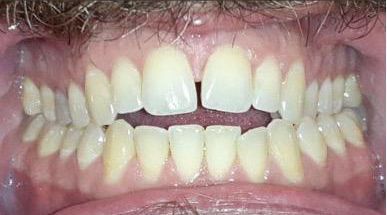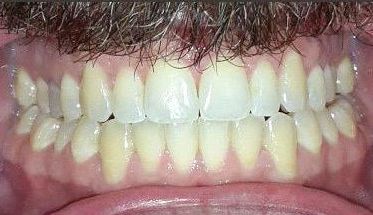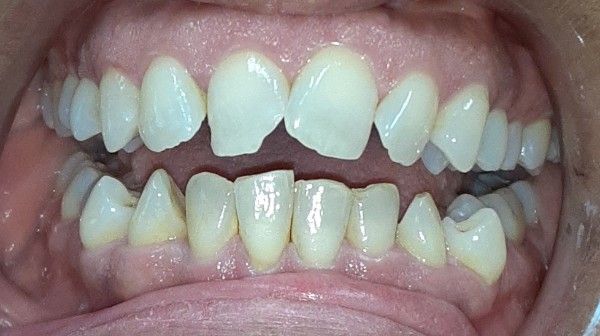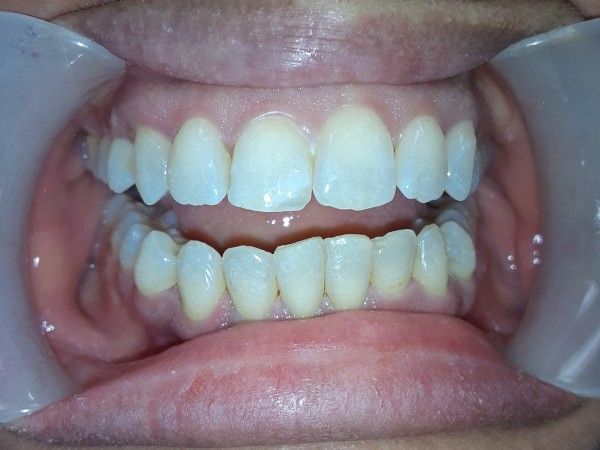Emergency Dentistry in Arlington Heights, IL
Same Day Emergencies Handled
When You Need It Most
No cost second opinions
20% off for self-paying patients
We Can Get You Out of Pain Today!
Book an Emergency Appointment
Emergency Dentistry
Emergency Dentistry in Arlington Heights, IL – Immediate Care for Dental Emergencies
At Definite Dental Solutions, we understand that a dental emergency can happen at any time, often causing intense tooth pain and distress. Whether you're dealing with a knocked-out tooth, a chipped tooth, or a cracked tooth, seeking immediate treatment from an emergency dentist is crucial to preserving your oral health.
Our team, led by Dr. Sukhjinder Thind, is committed to providing top-quality emergency dentistry in Arlington Heights, IL, ensuring that you receive prompt and effective care when you need it most. We offer same-day appointments to address common dental emergencies, such as severe toothaches, infections requiring root canal therapy, and other urgent dental issues. If you experience a dental injury, don’t hesitate to contact us for expert emergency dental care that can help prevent further complications. We also accept various dental insurance plans to make treatment accessible and stress-free. Whether you require a root canal, repair for a broken tooth, or urgent relief from pain, trust our team at Definite Dental Solutions to provide compassionate and professional emergency dentistry services in Arlington Heights, IL.
What Is a Dental Emergency?
No matter how diligent you are in protecting your dental health, emergencies can happen at any moment and without warning. These situations can leave patients in severe pain. It is important to contact our office immediately if you are experiencing any of these problems.
What Are Some of the More Common Dental Emergencies?
Everyday we treat various dental emergencies. It is important to contact our emergency dentist if you notice anything amiss.
• Severe toothache and pain
• Abscessing and infections
• Broken or cracked teeth
• Lost fillings, crowns, or bridgework
• Broken or lost appliances (dentures, night guards)
Why Do You Need Treatment For a Dental Emergency?
Emergency dental situations can quickly escalate without proper medical intervention, leading to more serious health complications or infections that require prompt emergency dental care as soon as possible - our practice offers prompt solutions for every dental emergency situation that arises.
What Can Be Expected While Undergoing Dental Emergency Treatment?
We will evaluate your symptoms at your first appointment and decide if an x-ray will be necessary. Once taken, our specialist will analyze it along with your teeth in order to determine the source of your symptoms before prescribing treatments. If there are active infections at the time of your appointment, we will prescribe antibiotics.
Call (847) 398-0878 our office immediately if you have a dental emergency. One of our highly-skilled staff members will be able to offer additional assistance.
Emergency Dental Special
Same-Day Appointments Available!
No-Cost Second Opinions, 20% Off for Self-Paying Patients, We Can Get You Out of Pain Today!
Meet
Dr. Sukhjinder Thind
Dr. Sukhjinder Thind received her DDS from Dalhousie University in Halifax, Canada and began her career in Ontario before establishing roots in the greater Chicago area with her family. Since 2004, Dr. Thind has thrived in a collaborative group practice environment working alongside multiple dental specialists to deliver seamless dental care. Passionate about empowering her patients, Dr. Thind champions comprehensive treatment planning that offers personalized choices, allowing patients to take an active role in their dental health. Her patient-centered philosophy brings general dentists and specialists together under one roof to deliver high-quality, all-inclusive care tailored to each unique smile.
Watch This Video About Dr.Sukhjinder Thind
Frequently Asked Questions
What Is Considered a Dental Emergency?
A dental emergency is any issue involving the teeth, gums, or mouth that requires urgent attention. Common emergencies include:
- Severe toothache
- Broken, cracked, or knocked-out tooth
- Abscess or infection
- Loose or lost filling or crown
- Bleeding that won’t stop
- Injury to the mouth, lips, or jaw
If you're unsure, it's always best to call your dentist and ask.
What Should I Do if I Have a Tooth Knocked Out?
Time is critical. Handle the tooth by the crown (top), not the root. If possible:
- Rinse it gently with water (no scrubbing)
- Try to place it back in the socket
- If you can’t, keep it in milk or saliva
- Call your dentist immediately—ideally within 30 minutes for the best chance of saving the tooth
Can I Go to the ER for a Dental Emergency?
Hospital emergency rooms can help with pain or infection, but they usually don’t treat dental issues directly. For most dental emergencies, it’s best to call a dentist who offers same-day or after-hours care.
What Can I Do for a Severe Toothache?
Until you see a dentist:
- Rinse with warm salt water
- Use over-the-counter pain relievers
- Apply a cold compress to the outside of your cheek
- Avoid placing aspirin directly on the tooth—it can cause chemical burns.
Do You Offer Same-Day Emergency Appointments?
Most emergency dental offices do offer same-day care for urgent issues. If you’re in pain or something feels wrong, call right away—the sooner you’re seen, the better the outcome.
Is Swelling in the Face or Gums Serious?
Yes. Swelling may indicate an infection or abscess, which can spread quickly. Seek emergency dental care immediately to prevent serious complications.
What if I Have a Broken Filling or Crown?
While not always painful, a broken filling or crown can expose the tooth to further damage or sensitivity. Call your dentist to replace or repair it as soon as possible.
How Much Does Emergency Dental Care Cost?
Costs vary based on the treatment needed (e.g., root canal, extraction, antibiotics). Many dental offices offer in-house payment plans or third-party financing for emergencies. If you have insurance, some urgent care may be partially covered.
Can I Prevent Dental Emergencies?
Not all emergencies can be avoided, but you can reduce your risk by:
- Visiting your dentist regularly
- Wearing a mouthguard during sports
- Avoiding chewing ice or hard objects
- Treating dental problems early, before they worsen
Should I Go to the Dentist or Wait It Out?
Never ignore dental pain or trauma. Waiting can make things worse and lead to more invasive—and expensive—treatment. If you’re in doubt, call your dentist and explain your symptoms.









